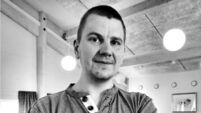Priests role covered up in Claudy bombing
The British Government and the Catholic Church were involved in an astonishing cover-up to shield a priest suspected of heading-up the IRA team responsible for one of Northern Ireland’s worst ever bomb atrocities, police claimed today.
Just months after the July 1972 attack on the village of Claudy, Co Derry, which left nine people dead, including three children, it has been alleged that the then Northern Ireland Secretary William Whitelaw and Cardinal William Conway, the Catholic Primate of all-Ireland, discussed the outrage and the activities of the priest.













